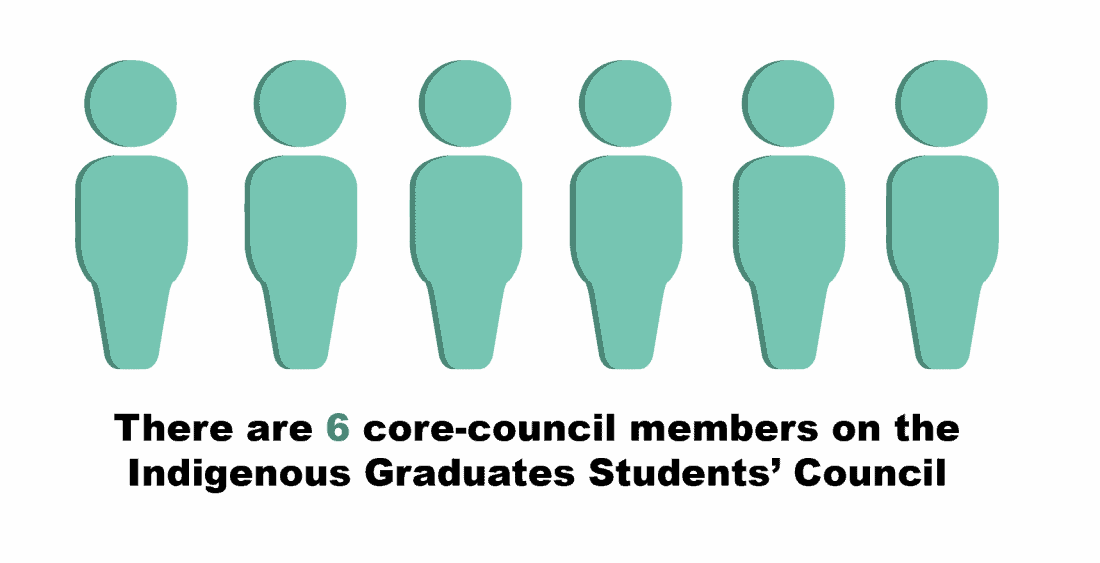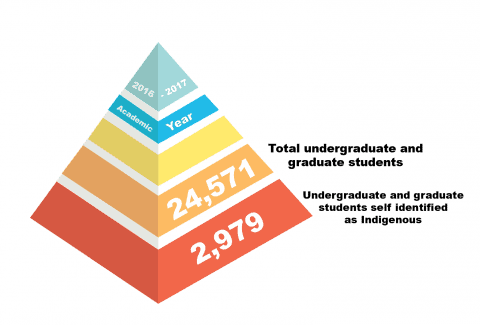After the Indigenous Students’ Council at the University of Saskatchewan called for the creation of an autonomous Indigenous Students’ Union, asking all Indigenous students to pull out of all conversations concerning Indigenization and reconciliation at the institution, one difficult question remains: how?
Since the release of the first ISC statement on Feb. 28, subsequent statements of support have emerged from numerous Indigenous and non-Indigenous student, faculty and administrative groups on campus. As of March 20, all but two Indigenous student groups have also withdrawn their ratification with the U of S Students’ Union.
The USSU currently serves as the governing body for all undergraduate students at the U of S, and its current iteration was established as a non-profit corporation in 1980. Currently, the university collects and distributes undergraduate-student fees to the USSU, and in turn, the USSU provides support, resources and services to students.

These supports, resources and services include health plans, transit passes, academic representation and advocacy. Furthermore, with membership in the union established by undergraduate status, all those who receive these benefits have an equal say in determining these benefits through elected representation in the active students’ council.
USSU General Manager Caroline Cottrell says dividing or separating this unified membership would be difficult under The Non-profit Corporations Act, which requires the elected executive of the non-profit to act in the best interests of the organization.
“I would say that, if the Indigenous Students’ Council wants to form their own student union, then they’re absolutely at liberty to do that, but that does not mean that Indigenous students will cease to be members of this organization.”
— Caroline Cottrell, USSU general manager
“Positive duty is taken very seriously in law, and that’s what we must abide by as an organization, for the good of all 17,000 students — Indigenous students, international students, trans students, every undergraduate student on this campus — and it’s a responsibility we take very seriously,” Cottrell said.
Should an independent representative organization emerge that will only include Indigenous students, it wouldn’t be first to sever ties with the USSU. The Graduate Students’ Association began their separation from the union in 1980, and in 1979, the Sheaf Publishing Society was established under the Societies Act, making the newspaper an independent democratic collective with membership open to university students-at-large.
Comparatively, although formed under different circumstances, there is precedent for a distinct Indigenous students body at the University of Victoria. Formed in 1960, the Native Students’ Union functions semi-autonomously from the UVic Student Society, which was created in 1963.
At this time, however, best interests for Cottrell mean keeping a common structure across the board and not dividing membership.
“I would say that, if the ISC wants to form their own student union, then they’re absolutely at liberty to do that, but that does not mean that Indigenous students will cease to be members of this organization,” Cottrell said. “These two do not necessarily stand in opposition to one another — we are still, and will continue to be, the umbrella group for all undergraduate students.”
Under the current governance model of the USSU, Indigenous students are uniquely represented with two seats in the University Students’ Council, as Cottrell explains, although one seat has been vacant since Oct. 5, 2017.
“At the moment, we have representation from what we now call constituency groups, rather than colleges, because Indigenous students and international students were added, along with all other undergraduate colleges including St. Thomas More, which is a federated college,” Cottrell said.
Indigenous students elected to the USC are also entitled a seat on the USSU Indigenous Student Affairs Committee, which is chaired by the USSU president and includes the USSU vice-president student affairs, the president of the Indigenous Students’ Council and four self-declared Indigenous students-at-large.

To paint a picture of this hierarchy, the Indigenous Students’ Council was ratified as a student group under the USSU until March 9. Ratification gave them a set amount of funding and extended USSU insurance to the ISC’s events and space rentals. For all intents and purposes, prior to their request to de-
ratify, the ISC was considered a USSU campus club.
“In some ways, the Indigenous students and the international students hold a place that is unique, [but] in another sense, all the colleges and student groups all sort of exist in a different place — in terms of paying a ratification fee, getting insurance, they’re all equal. In that sense, there’s no difference between [a] flint knapping club and the ISC,” Cottrell said.
Are there ways to facilitate this seemingly impossible division of representation at the U of S? Beth Bilson, university secretary and professor in the College of Law, says that, although creating a new union is not an actionable cause for the university administration to pursue, there are options for Indigenous students to consider themselves.
“[If] the ISC were to set itself up an independent non-profit corporation, … there are some things that the university would have to provide. If they wanted to run exactly as the USSU in terms of rerouting student fees, that would require a conversation and technical decisions about how feasible that is,” Bilson said.
University government operates in congruence with the USSU, Bilson explains, and its offices and constituency groups are determined by provincial legislation. Though she believes steps have been taken to include Indigenous students at this level of institutional governance, she acknowledges that it would be difficult to establish new positions that are equal to those held by the USSU because of existing stipulations in The University of Saskatchewan Act.
“They also have a responsibility not to allow minorities to be oppressed by the majority.”
— Beth Bilson, university secretary and professor of law
“[For example], there is a provision in The University of Saskatchewan Act for [the] representation of students on the governing bodies of the university, and in the case of the Board of Governors, that’s the president of the USSU. The student that sits on the Board of Governors is always the president of the USSU,” Bilson said.
Bilson argues that, in moving forward, the positive duty of the USSU’s directors to protect and maintain the membership of the organization is compounded with a responsibility to avoid circumstances of inequality.
“Whatever their personal views might be about whether it’s a good thing or a bad thing, they have to look [at it] from the point of view of the interests of the corporation — it’s complicated by the fact that they also have a responsibility not to allow minorities to be oppressed by the majority,” Bilson said.
Bilson also acknowledges that Indigenous students’ frustrations have been made known to the university administration.
“They question whether the university is serious about Indigenization and about creating a comfortable environment for them — and [while] there are a lot of people who are working to bring that vision about, you can understand that the experience of a lot of Indigenous students is difficult,” Bilson said.
Whatever the outcome of conversions that will follow, it is important for all players to recognize that there is an imbalance of power between the Indigenous student population at the U of S and the structures that govern them. While support and efforts to maintain a dialogue have been expressed by multiple parties, including settlers who are members of the faculty or part of the campus community, there is much which has yet to be understood.
The Sheaf reached out to the ISC with inquiries concerning their asks and subsequent steps to action after their statement of non-cooperation was released, but they could not provide comment. The ISC, Indigenous Graduate Students’ Council, Saskatchewan Urban Native Teacher Education Program Student Council and Food Sovereignty Association will host a townhall discussion for Indigenous students to meet, organize and strategize on March 22.
—
Emily Migchels / Opinions Editor
Infographics: Lesia Karalash / Graphics Editor
Leave a Reply